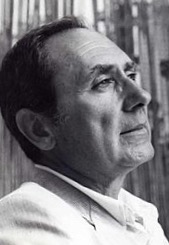Alberto Ronchey
( journalist, politician) | |||||||||||||||||||||||||||||||||||||||||||||||||||||||||||||||||||||||||||||||||||||||||||||||||||
|---|---|---|---|---|---|---|---|---|---|---|---|---|---|---|---|---|---|---|---|---|---|---|---|---|---|---|---|---|---|---|---|---|---|---|---|---|---|---|---|---|---|---|---|---|---|---|---|---|---|---|---|---|---|---|---|---|---|---|---|---|---|---|---|---|---|---|---|---|---|---|---|---|---|---|---|---|---|---|---|---|---|---|---|---|---|---|---|---|---|---|---|---|---|---|---|---|---|---|---|
 | |||||||||||||||||||||||||||||||||||||||||||||||||||||||||||||||||||||||||||||||||||||||||||||||||||
| Born | 27 September 1926 Rome, Italy | ||||||||||||||||||||||||||||||||||||||||||||||||||||||||||||||||||||||||||||||||||||||||||||||||||
| Died | 5 March 2010 (Age 83) Rome, Italy | ||||||||||||||||||||||||||||||||||||||||||||||||||||||||||||||||||||||||||||||||||||||||||||||||||
| Nationality | Italian | ||||||||||||||||||||||||||||||||||||||||||||||||||||||||||||||||||||||||||||||||||||||||||||||||||
| Alma mater | Sapienza University of Rome | ||||||||||||||||||||||||||||||||||||||||||||||||||||||||||||||||||||||||||||||||||||||||||||||||||
Italian journalist, Moscow correspondent and and editor who attended the 1968 and 1974 Bilderbergs.
| |||||||||||||||||||||||||||||||||||||||||||||||||||||||||||||||||||||||||||||||||||||||||||||||||||
Alberto Ronchey was an Italian journalist, essayist and politician. He was selected to attend the 1968 and 1974 Bilderberg meetings.
Background
He was born in Rome in 1926, and graduated in law from the Sapienza University of Rome
career
Alberto Ronchey began his journalistic career at a very young age in the newspaper La Voce Repubblicana (organ of the liberal Italian Republican Party), of which he then became director. He also worked on il Mondo and Resto del Carlino. He was sent toMoscow for Alfio Russo's Corriere della Sera, to later moved to La Stampa, where he was first special correspondent and then director from 1968 to 1973.[1]
Later he carried out an intense activity as columnist for Corriere della Sera and la Repubblica, as well as for some weekly newspapers. In those years he also collaborated with Rai.[1]
Ronchey became Minister for Cultural and Environmental Heritage in the first Amato government (1992-1993) and in the Ciampi Government (1993-1994).[1]
After his government time, Ronchey was appointed president of the company Rizzoli Corriere della Sera (1994-1998).[1]
He coined the phrase fattore K (factor K) - from the Russian Kommunizm (communism) - first used in an editorial in the Corriere della Sera of 30 March 1979,[2][3] to explain the lack of turnover of government political forces in the first fifty years the Republic of Italy. The reason was that the Communist Party (PCI) was forbidden from participating in the government because of it close ties with the Soviet Union. Secondly, in Italy the PCI was the second biggest political force in Parliament: this prevented the Socialists or Social Democrats from reaching enough consensus to become the government alternative.
Events Participated in
| Event | Start | End | Location(s) | Description |
|---|---|---|---|---|
| Bilderberg/1968 | 26 April 1968 | 28 April 1968 | Canada Mont Tremblant | The 17th Bilderberg and the 2nd in Canada |
| Bilderberg/1974 | 19 April 1974 | 21 April 1974 | France Hotel Mont d' Arbois Megève | The 23rd Bilderberg, held in France |
References
- ↑ Jump up to: a b c d https://www.treccani.it/enciclopedia/alberto-ronchey/
- ↑ ^ Alberto Ronchey, La sinistra e il fattore K, in Corriere della Sera, 30 marzo 1979.
- ↑ https://web.archive.org/web/20220705191945/https://www.corriere.it/Primo_Piano/Editoriali/2006/05_Maggio/12/ronchey.shtml